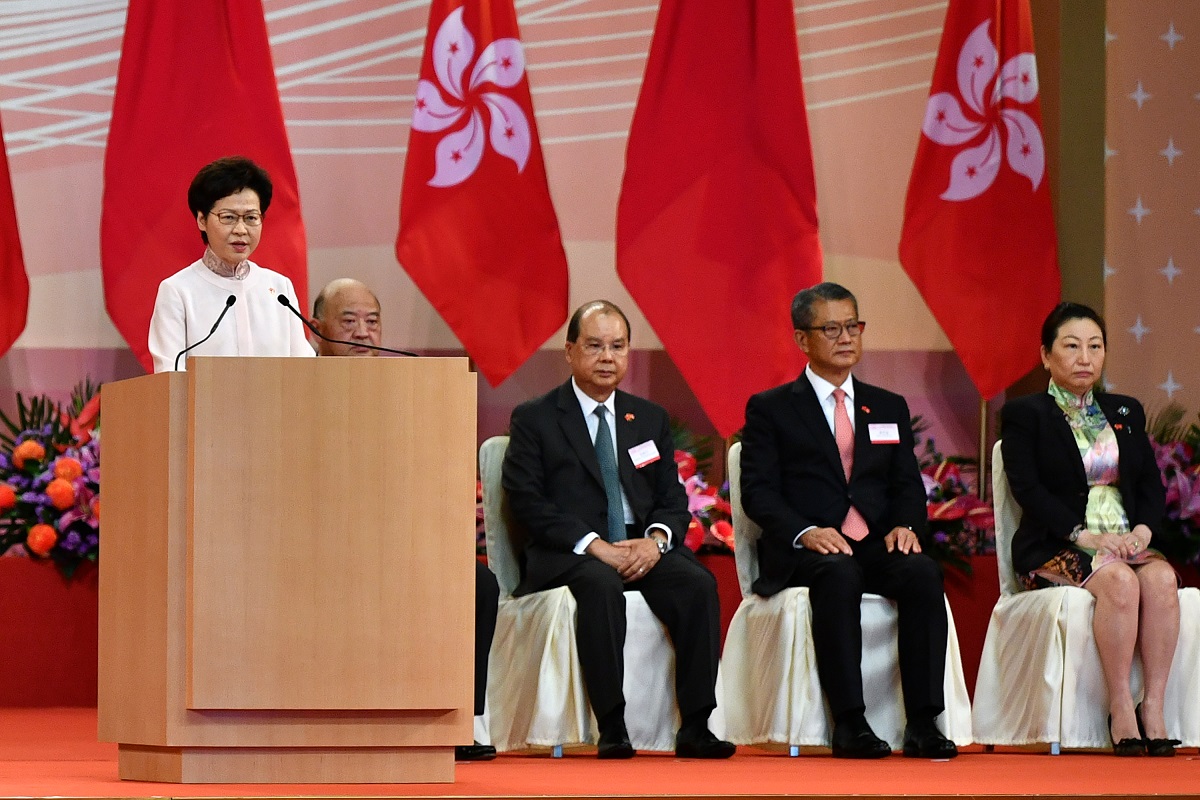Hong Kong leader Carrie Lam on Wednesday hailed a sweeping national security law imposed by Beijing as the “most important development” since the city was handed back to China.
Lam told dignitaries at a ceremony marking the 23rd anniversary of the city’s return to Chinese rule,”The legislation of the national security law is considered the most important development in relations between the central government and Hong Kong since the handover”.
Advertisement
“The national security law is a turning point for Hong Kong from chaos to being governed well,” she further added.
Earlier on Tuesday, China passed a sweeping national security law for Hong Kong prohibiting acts of secession, subversion, terrorism and collusion with foreign forces to endanger national security.
The new suite of powers radically restructures the relationship between Beijing and Hong Kong, toppling the legal firewall that has existed between the city’s judiciary and the mainland’s party-controlled courts.
On Sunday, the NPCSC began a special meeting fast-tracking the bill, which was passed on the last day of the three-day session.
China will have jurisdiction over “serious” cases and its security agencies will also be able to operate publicly in the city for the first time, unbound by local laws as they carry out their duties.
Passage of the controversial legislation came a day after China announced visa restrictions on US officials who have “behaved extremely badly” over Hong Kong.
Addressing the media before China passed the law, Hong kong Chief Executive Lam on Tuesday said that any warnings from the US or other foreign governments to impose sanctions over the matter “would not scare Hong Kong”, and the city’s government would fully cooperate with Beijing on any potential countermeasures.
Lam — a pro-Beijing appointee — rejected concerns the law will end Hong Kong’s freedoms.
On Wednesday, Lam said in her speech that the law “will not undermine Hong Kong’s judicial independence and high degree of autonomy, and won’t affect the Hong Kong people’s freedoms and rights.”
On May 22, China proposed a national security law for Hong Kong in response to last year’s violent pro-democracy protests that plunged the city into its deepest turmoil since it returned to Chinese rule in 1997.
The proposal, which has been condemned by the United States and Hong Kong pro-democracy figures as an assault on the city’s freedoms, was tabled on the opening day of the week-long National People’s Congress.
Hong Kong has been gripped for several years by political unrest and demonstrations, which had been gaining momentum in the months leading up to the coronavirus outbreak, which led to them being suspended.











